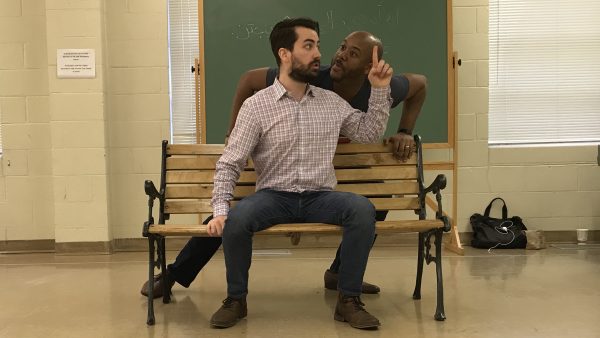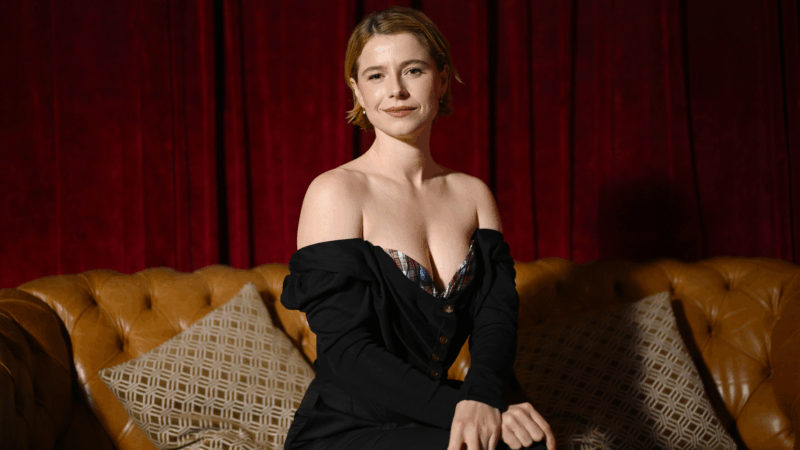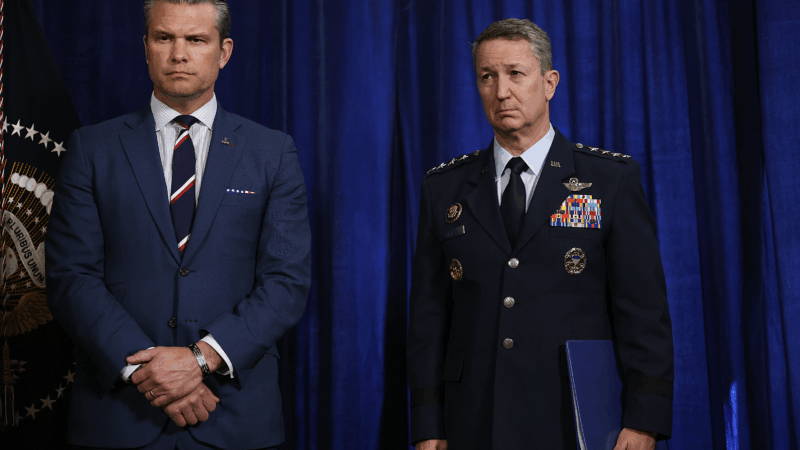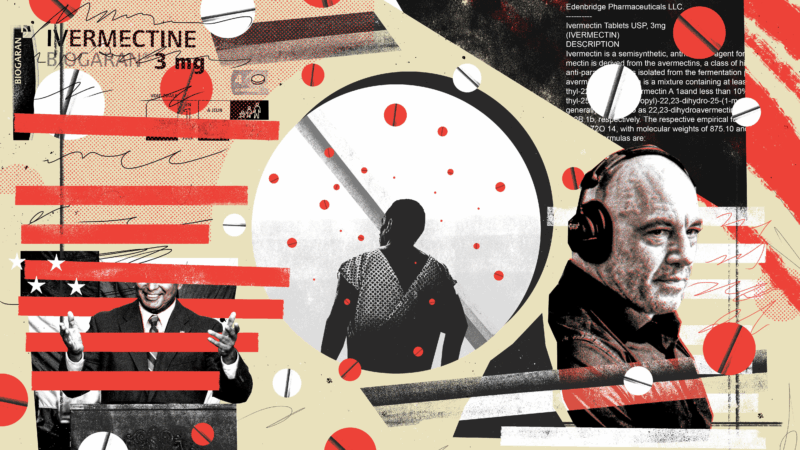Opera Birmingham’s ‘Independence Eve’ Tackles Racial Themes
Brian Wallin (left) and Jorell Williams rehearse a scene from "Independence Eve." The show plays in Birmingham Friday and Sunday.
In 2011, the New York City Police Department’s stop-and-frisk program hit its peak with almost 700,000 people stopped that year. The practice, in which police briefly detain, question or search those suspected of a crime, has generated controversy and legal questions because it disproportionately targeted people of color. It also inspired a work that will be performed by Opera Birmingham this weekend.
“Independence Eve” uses opera to explore the often fraught and complicated conversations around race.
The show had its origin around 2012 with an aria librettist Daniel Neer wrote with composer Sidney Marquez Boquiren. It’s about a young, African-American professional’s experience of being stopped and frisked by police. That developed into a trio of scenes taking place in 1963, 2013 and 2063, with each scene a conversation between a white person and a person of color. Race is front and center, yet unresolved, which Neer says reflects how he and Boquiren feel about race in America.
“That we are always on the precipice of some kind of breakthrough,” Neer says. “We’re always on the eve of us all totally being free and yet we never quite get there.”
“Independence Eve” is a modern work, so there’s not really a tune to hum on the way home from the show. It’s not grand with over-the-top staging. Instead, two performers move around a couple of benches on an intimate stage. Still Neer says opera is an ideal vehicle to explore race.
“I think the themes that we’re talking about and the emotions that are at play are very operatic,” Neer says.
The show elicits personal reflection for the performers. Jorell Williams, who is black, remembers being stopped by police. He was in front of Carnegie Hall, wearing a tuxedo. His face was on promotional show posters nearby as he tried to enter the building for a rehearsal. Police told him he matched the description of someone suspected of a crime.
“Fortunately, in that particular situation, they were wrong and they accepted it,” Williams says. “But there was no apology, so I couldn’t do anything. I had to go perform.”
Despite the subject matter, there’s no heavy moralizing. Performer Brian Wallin says the focus is on the conversation between the characters.
“What we’re really trying to achieve is not always there being this aggressive victim, attacker concept. But that there’s just two humans who are trying to understand each other,” Wallin says.
In a way, “Independence Eve” is part of a larger conversation about inclusion within the opera world. Opera can sometimes be seen as a bastion of white performers, staging works by dead white European men for white audiences. Composer Sidney Marquez Boquiren is from the Philippines. He says the discussion is not about supplanting the greats but growing the space, like a garden.
“We are finding newer and newer gardens that are richer and fuller and more inviting and more welcoming,” Boquiren says.
“Independence Eve” premiered in Washington, D.C. in 2017. It’s been performed in New York, but never in the Deep South. Boquiren remembers joy when he received the call Opera Birmingham was interested.
“We were like ‘wow’ because certainly there’s this connection with Birmingham that’s explicit,” Boquiren says.
The work mentions Birmingham in the first scene, but the libretto simply says the action takes place in three American cities. It’s a reminder that while Birmingham’s racial history feels perhaps heavier than elsewhere, it’s an American conversation. In this instance, the conversation happens through opera.
“Independence Eve” plays Friday and Sunday at the Red Mountain Theatre Company’s Cabaret Theatre.
Opera Birmingham is a program sponsor on WBHM, but our news and business departments operate independently.
Clarification
January 24th
An earlier version of this story identified Sidney Marquez Boquiren as a Filipino-American; he is simply from the Philippines.
Some Middle East flights resume, but thousands of travelers are still stranded by war
Limited flights out of the Middle East resumed on Monday. But hundreds of thousands of travelers are still stranded in the region after attacks on Iran by the U.S. and Israel.
‘Hamnet’ star Jessie Buckley looks for the ‘shadowy bits’ of her characters
Buckley has been nominated for a best actress Oscar for her portrayal of William Shakespeare's wife in Hamnet. The film "brought me into this next chapter of my life as a mother," Buckley says.
How, who, and why: NPR flips its famous letters to defend the right to be curious
NPR is standing up for the public's right to ask hard questions in a national campaign dubbed "For your right to be curious." At NPR's headquarters, on billboards in New York City, Chicago, and Washington, D.C., and across social media, NPR's three iconic letters transform into "how," "who," and "why" — a bold declaration of its commitment to fight for Americans' right to ask questions both big and small.
Hegseth: ‘We didn’t start this war but under President Trump we’re finishing it’
The remarks are the first to reporters since the U.S.-Israeli military operations against Iran began Saturday despite weeks of talks designed to stave off a conflict.
Ivermectin is making a post-pandemic comeback, among cancer patients
The anti-parasitic drug became a household name during the COVID-19 pandemic, and it is now being embraced as an alternative treatment for cancer. It is as politically polarizing as ever.
Rep. Adam Smith on the U.S. strikes on Iran and the debate over Trump’s war powers
NPR's Leila Fadel asks Democratic Rep. Adam Smith of Washington, the ranking member on the House Armed Services Committee, about President Trump's unilateral authorization to strike Iran.







